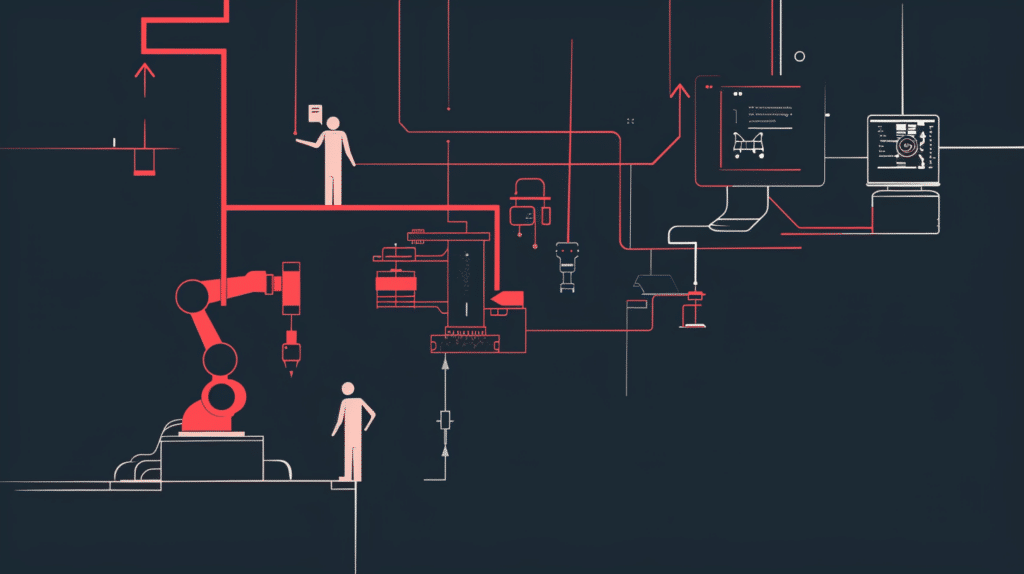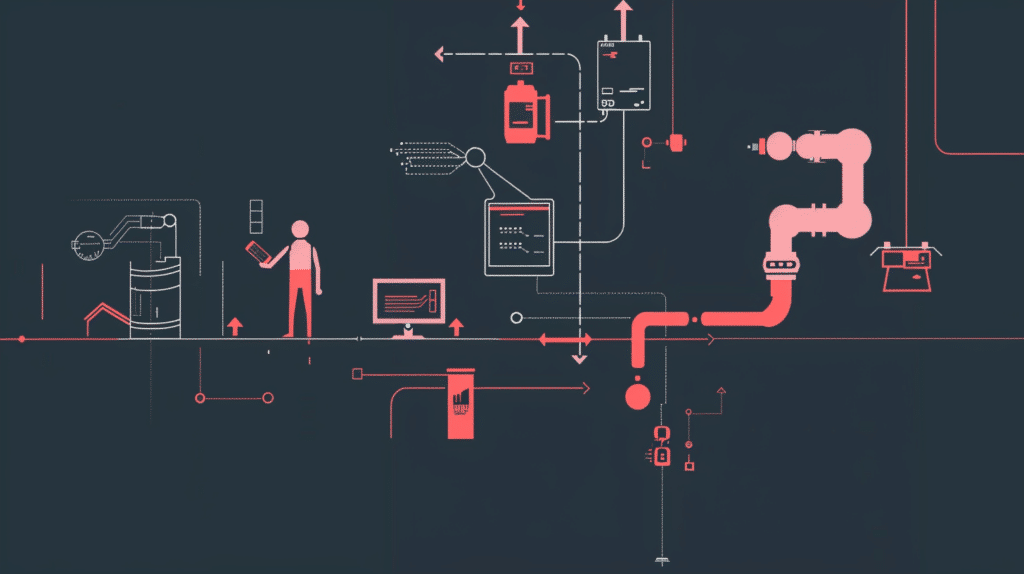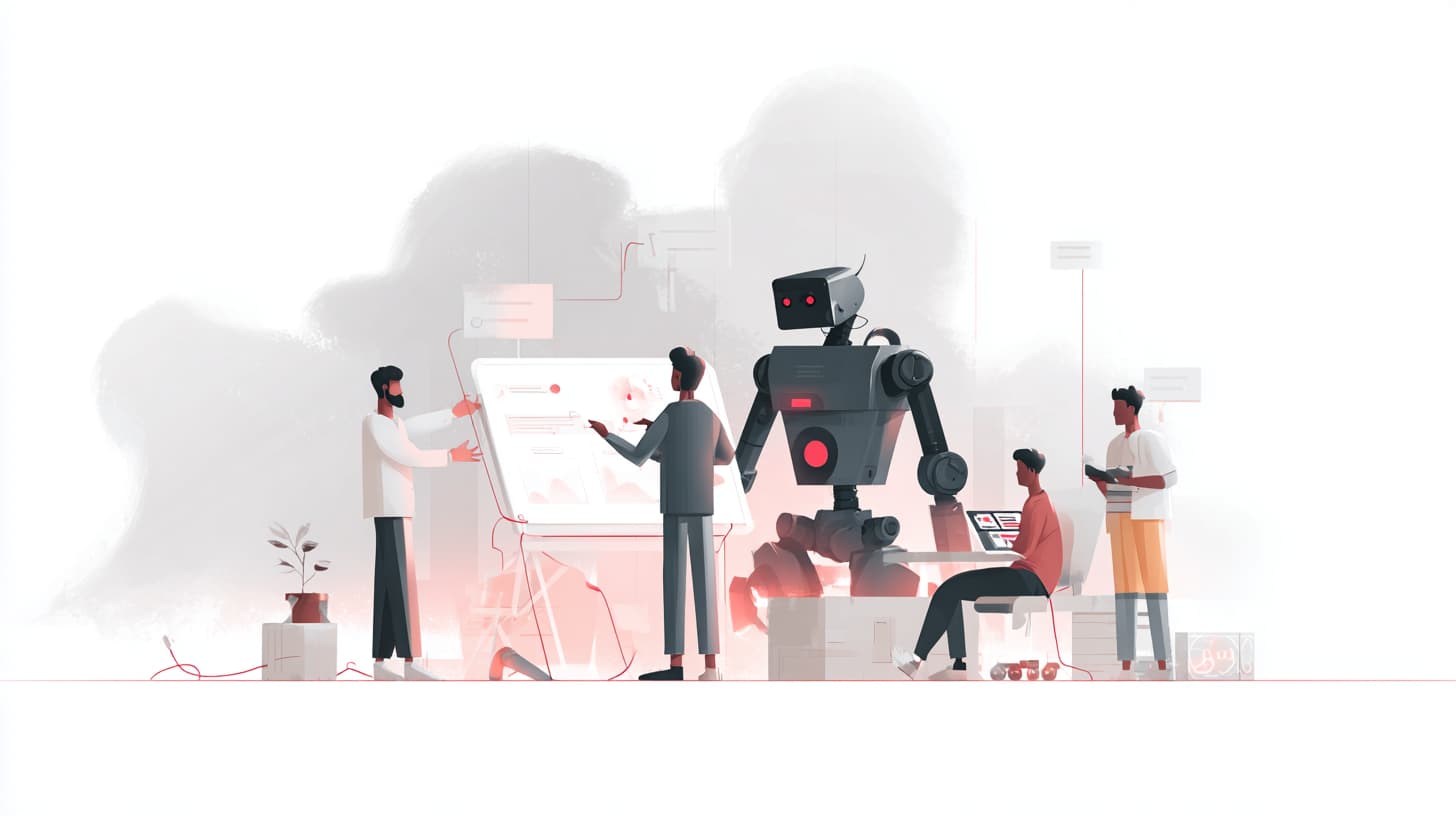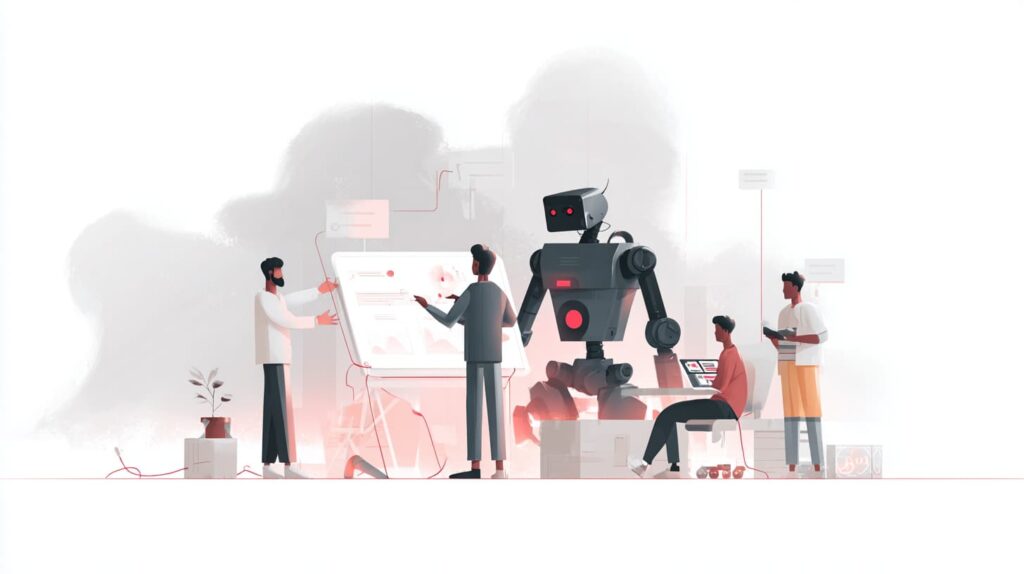By Alexandre Sawaya Alves Guimarães
- The automation of processes is nowadays one of the pillars of the Digital Transformation movement in business.
- Artificial Intelligence allows automations to become even more precise, efficient and capable of adapting to complex scenarios.
- This article explores the EloGroup’s approach using Artificial Intelligence as a lever for generating value in the process automation discipline.
The discipline of process automation is today one of the pillars of the Digital Business Transformation movement in organizations of all kinds. Its foundations are based on the use of a series of technologies to automate and optimize repetitive tasks, activities or processes. Therefore, its main objective is to reduce human intervention and, by that, increase efficiency, reducing the time spent on manual and error-prone activities.
Process automation can be applied in different contexts and levels. From the automation of individual tasks to more complex processes that integrate several steps and decisions in multiple spheres of an organization: managing and coordinating the activities of users or departments more efficiently within a small company or using automated systems to control production, monitor equipment, guarantee quality and reduce the risks of accidents in industrial environments.
But just like Digital Transformation as a whole, process automation is also a discipline in constant development. More recently, with the evolution and maturing of AI technologies, we have seen the application of these systems to take automation to new heights of excellence, precision and value generation capacity.
In this article, we will explore in depth how AI can be used as a lever for process automation within organizations. But first, let’s review some fundamental concepts and discuss the EloGroup’s vision of these disciplines.
EloGroup’s vision on process automation
As a business transformation consultancy, EloGroup sees the process automation as an opportunity to improve its clients’ operational efficiency. It aims to reduce costs, increase productivity and release resources for more strategic activities.
The starting point for our work is to identify which processes or tasks could benefit from automation, considering factors such as workload, complexity, frequency of execution and potential return on investment. In addition, before recommending automation, we can carry out a detailed analysis to determine whether it is feasible and which technologies would be best suited to the client’s specific needs, helping to choose the best tools available on the market.
With the solutions determined, EloGroup can help its clients implement the tools and integrate them to the organization’s existing systems. After that, we can also carry out a hyper care to monitor the results and make continuous improvements to optimize the performance of the automated processes over time.
Technologies involved in the automation of processes
Below, are some of the technologies that can be involved in the context of a process automation project, bearing in mind that the choice of technologies will vary depending on the specific requirements and the nature of the processes:
- Robotic Process Automation (RPA): uses software robots to automate tasks in systems, such as interactions in application interfaces, data processing and document handling;
- Business Process Management (BPM): involves the use of software to model, execute, monitor and optimize business processes. BPM makes it possible to automate complex workflows and coordinate activities between teams;
- Optical Character Recognition (OCR): allows systems to “read” and interpret text in digitized documents or images, making it easier to extract information for automated processing; and
- Chatbots and Virtual Assistants: used to automate interaction with customers or users, providing automatic answers to common questions and helping to solve problems without human intervention.

Examples of process automation
These different technological approaches can be used individually or together, forming what we call “hyperautomation”. There are applications in various sectors and areas of activity. Some of the most common examples include:
- Administrative processes: automatic generation of reports, processing of invoices and approval of internal documents, such as employee holiday requests;
- Customer service: using chatbots to provide answers to common questions from customers and sending email replies to confirm support requests or inform about the status of an order;
- Human Resources: screening CVs in selection processes and automating the hiring process for new employees;
- Marketing: sending welcome emails or campaigns to specific customer segments, automating social media posts at specific times and automatically detecting success patterns for marketing campaigns;
- Industrial production: real-time monitoring of industrial processes and decision-making support systems for industrial agents;
- Financial processes: processing payments and bank transactions or reconciling financial and accounting data;
- Logistics processes: routing to optimize the delivery of goods or tracking shipments and updating information in real time; and
- IT (Information Technology) processes: deploying code in production and test environments or carrying out automated tests to guarantee software quality during development.
Artificial Intelligence leveraging the automation
As highlighted at the beginning of this article, the development and maturing of AI technology – particularly with the greater availability of data, specialized hardware and new state-of-the-art models –, has culminated in a veritable revolution in the field of Artificial Intelligence, which has also impacted the discipline of process automation. But how has this happened?
The use of AI is highly relevant in the context of automation because it adds powerful new layers of intelligence and adaptability to processes. For example, it allows systems to “learn” from past data and experiences, making them self-improve, bringing to the table more efficiency, accuracy and the ability of dealing with complex scenarios.
Because of this, automations can easily adjust to deal with new or unforeseen situations, ensuring that the process continues to function efficiently, even in contexts of adversity. Some possible cases of this combination:
- Natural Language Processing (NLP): enables a human language interface between users and systems, facilitating communication and making them more accessible, with the creation of virtual assistants and chatbots;
- Personalized recommendations: help provide users with relevant information and suggestions, based on their interests and previous behavior, or even carry out predictive analyses based on historical data, forecasting future trends and improving decision-making; and
- Optimization of automated workflows: improves the coordination and management of tasks in the organization, especially in conjunction with RPA in repetitive and low-value tasks, freeing up employees to focus on more strategic and creative activities. In addition, the use of AI with automation can make it possible to coordinate tasks and identify fruitful patterns in processes to reduce costs and inefficiencies, even in processes with high added value.
Technologies needed to use AI and automation in an organization
Some technology lenses that appear in the implementation of AI in process automation are:
- Machine Learning is essential to enable AI to learn from data and improve its performance on specific tasks. Its algorithms can be used for classification, regression, clustering and other data analysis tasks;
- Access to large volumes of data to train models and improve performance. Efficient data storage systems, such as SQL databases or Big Data management systems, are essential to support the data needs of AI;
- Cloud computing offers the scalability and flexibility needed to run AI applications and process automation. In addition, the cloud allows access to computing resources on demand and the ability to handle large amounts of data;
- Availability of APIs (Application Programming Interfaces), which allow different systems and technologies to communicate with each other, making it possible to integrate various AI and automation solutions within an organization; and
- Information security structure when dealing with confidential data and critical company information. Implementing robust security measures is key to protecting AI and automation systems from cyber threats.
Thus, the successful implementation of AI and automation in an organization requires a holistic approach and collaboration between IT teams, data specialists and business professionals. It is important to understand the organization’s needs and objectives before selecting the most suitable technologies for implementing AI and automation.

Risks and barriers
The implementation of Artificial Intelligence in the automation of processes in an organization can present some risks and barriers that need to be considered and dealt with appropriately. Some of the main challenges are:
- Initial costs: Implementing AI and automation solutions can involve significant costs, including the acquisition of technologies, staff training and infrastructure. This might be an obstacle for some organizations;
- Lack of adequate data: AI requires large amounts of data to train and improve models. If the organization does not have sufficient or quality data for implementation, this can hamper the effectiveness of automated systems;
- Integration of legacy systems: In organizations with complex legacy systems, integrating AI can be a challenge. Adapting existing systems to support AI may require additional effort;
- Ethical and privacy issues: The collection and use of personal data by AI can raise privacy and ethical concerns. Ensuring compliance with data protection regulations is crucial; and
- Cultural resistance: In some organizations, there may be cultural resistance to adopting new technologies or a “we have always done it this way” mentality that makes it difficult to implement AI.
It is important that organizations address these risks and barriers strategically and carefully. This can involve carrying out risk assessments, investing in employee training and awareness, ensuring compliance with regulations, adopting best practices in cyber security and an ethical approach to data collection and use. In addition, leadership committed to innovation and digital transformation is essential to overcoming these challenges and reaping the benefits of AI in process automation.
EloGroup’s role
As a consultancy specializing in business transformation, on a journey from strategy to delivery, we rely on technological lenses, such as AI and process automation, to solve our clients’ challenges and add more value to their operations.
We adapt these solutions to the specific needs of each client. Because we understand that each organization is unique and therefore needs tailor-made solutions to ensure successful implementation. We follow a solid and proven method in our consultancy projects, which guarantees a structured and effective approach to implementing AI and automation.
In the report “Generative Revolution: The Impact of Artificial Intelligence on Business”, we go into a little more detail about this method centered on advanced analytics and the efficient handling of data.
As well as focusing on technology, EloGroup is also concerned with understanding your organization’s business goals. This allows us to develop solutions that are aligned with the strategy and the desired results, seeking to make tangible deliveries to our clients. Our results-oriented approach aims to ensure that the implementation of AI and automation generates real value for the organization.
To ensure compliance with best practices and current regulations, we consider aspects like data governance, AI ethics and compliance with data protection regulations. Making our clients comfortable with the changes that will take place is key to setting up long-term relationships and partnerships, tracking progress, offering ongoing support and adapting solutions as necessary over time.
With EloGroup, you will have an experienced and dedicated team that can help you navigate the complex world of AI and process automation, transforming your operations for greater efficiency, productivity and innovation.
Alexandre Sawaya Alves Guimarães works as Senior Consultant at EloGroup.











